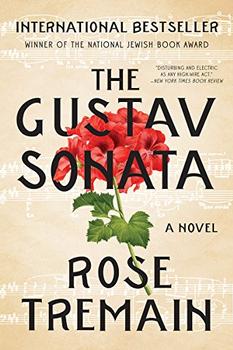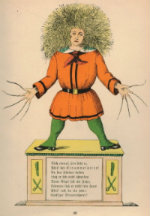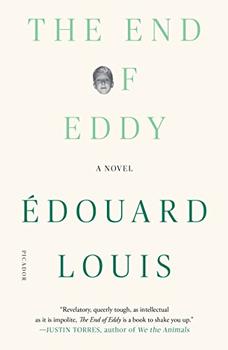Summary | Excerpt | Reviews | Beyond the book | Read-Alikes | Genres & Themes | Author Bio

Critics' Opinion:
Readers' Opinion:
First Published:
Sep 2016, 256 pages
Paperback:
Sep 2017, 256 pages
 Book Reviewed by:
Book Reviewed by:
Kate Braithwaite
Buy This Book
A breathtakingly radiant story of an unlikely childhood friendship that survives the test of time.
Gustav Perle grows up in a small town in Switzerland, where the horrors of the Second World War seem only a distant echo. An only child, he lives alone with Emilie, the mother he adores but who treats him with bitter severity. He begins an intense friendship with a Jewish boy his age, talented and mercurial Anton Zweibel, a budding concert pianist. The novel follows Gustav's family, tracing the roots of his mother's anti-Semitism and its impact on her son and his beloved friend.
Moving backward to the war years and the painful repercussions of an act of conscience, and forward through the lives and careers of the two men, one who becomes a hotel owner, the other a concert pianist, The Gustav Sonata explores the passionate love of childhood friendship as it is lost, transformed, and regained over a lifetime. It is a powerful and deeply moving addition to the beloved oeuvre of one of our greatest contemporary novelists.
Mutti
Matzlingen, Switzerland, 1947
At the age of five, Gustav Perle was certain of only one thing: he loved his mother.
Her name was Emilie, but everybody addressed her as Frau Perle. (In Switzerland, at that time, after the war, people were formal. You might pass a lifetime without knowing the first name of your nearest neighbour.) Gustav called Emilie Perle 'Mutti'. She would be 'Mutti' all his life, even when the name began to sound babyish to him: his Mutti, his alone, a thin woman with a reedy voice and straggly hair and a hesitant way of moving from room to room in the small apartment, as if afraid of discovering, between one space and the next, objects – or even people – she had not prepared herself to encounter.
The second-floor apartment, reached by a stone staircase too grand for the building, overlooked the River Emme in the town of Matzlingen, in an area of Switzerland known as Mittelland, between the Jura and the Alps. On the wall of Gustav&#...
Rose Tremain is a tremendous writer and her literary powers are displayed to great effect in this novel. She is a master at leaving gaps for the reader to fill in and really feel what is happening. Although I enjoyed the conclusion to the story of Gustav and his friend Anton, I felt that there were not enough scenes of them together, particularly in the section when they are adults, to provide the emotional punch Tremain was aiming for...continued
Full Review
(505 words)
This review is available to non-members for a limited time. For full access,
become a member today.
(Reviewed by Kate Braithwaite).
 Ian McEwan
The Gustav Sonata is beautifully rendered, and magnificent in its scope. It glows with mastery.
Ian McEwan
The Gustav Sonata is beautifully rendered, and magnificent in its scope. It glows with mastery. Neel Mukherjee
The Gustav Sonata - beautiful, musical, tender - is the latest novel from a writer who commands her readers' attention and affections like no one else. It is an immensely moving book, and written with such crystalline clarity and precision that it will take your breath away.
Neel Mukherjee
The Gustav Sonata - beautiful, musical, tender - is the latest novel from a writer who commands her readers' attention and affections like no one else. It is an immensely moving book, and written with such crystalline clarity and precision that it will take your breath away. Salman Rushdie
The Gustav Sonata is a work of extreme and painful beauty, the story of one profound love amid many failed relationships, and of the conflict between passion and self-control. Rose Tremain is one of the very finest British novelists, and deserves, with this brilliant novel, to reach a wide new audience.
Salman Rushdie
The Gustav Sonata is a work of extreme and painful beauty, the story of one profound love amid many failed relationships, and of the conflict between passion and self-control. Rose Tremain is one of the very finest British novelists, and deserves, with this brilliant novel, to reach a wide new audience.In The Gustav Sonata, Gustav and Anton share a love of the German children's book, Struwwelpeter, which was written by Dr Heinrich Hoffmann in 1844. NPR noted that Struwwelpeter "set the stage for children's book classics like Where the Wild Things Are and the beloved Charlie and the Chocolate Factory."
 There have been countless editions of this collection of frightening and cautionary stories, delivered in jaunty rhyming couplets, and it has been translated into 35 languages. Most striking are the drawings — the famous children's book author Maurice Sendak called Struwwelpeter "graphically, one of the most beautiful books in the world." English readers may be more familiar with the translated name for Struwwelpeter, ...
There have been countless editions of this collection of frightening and cautionary stories, delivered in jaunty rhyming couplets, and it has been translated into 35 languages. Most striking are the drawings — the famous children's book author Maurice Sendak called Struwwelpeter "graphically, one of the most beautiful books in the world." English readers may be more familiar with the translated name for Struwwelpeter, ...
This "beyond the book" feature is available to non-members for a limited time. Join today for full access.

If you liked The Gustav Sonata, try these:

by Romain Gary, Miranda Richmond Mouillot
Published 2019
Romain Gary's bittersweet final masterpiece, a novel of courage and resistance - never before in English.

by Edouard Louis
Published 2018
An autobiographical novel about growing up gay in a working-class town in Picardy.





The Flower Sisters
by Michelle Collins Anderson
From the new Fannie Flagg of the Ozarks, a richly-woven story of family, forgiveness, and reinvention.

The House on Biscayne Bay
by Chanel Cleeton
As death stalks a gothic mansion in Miami, the lives of two women intertwine as the past and present collide.

The Funeral Cryer by Wenyan Lu
Debut novelist Wenyan Lu brings us this witty yet profound story about one woman's midlife reawakening in contemporary rural China.
Your guide toexceptional books
BookBrowse seeks out and recommends the best in contemporary fiction and nonfiction—books that not only engage and entertain but also deepen our understanding of ourselves and the world around us.